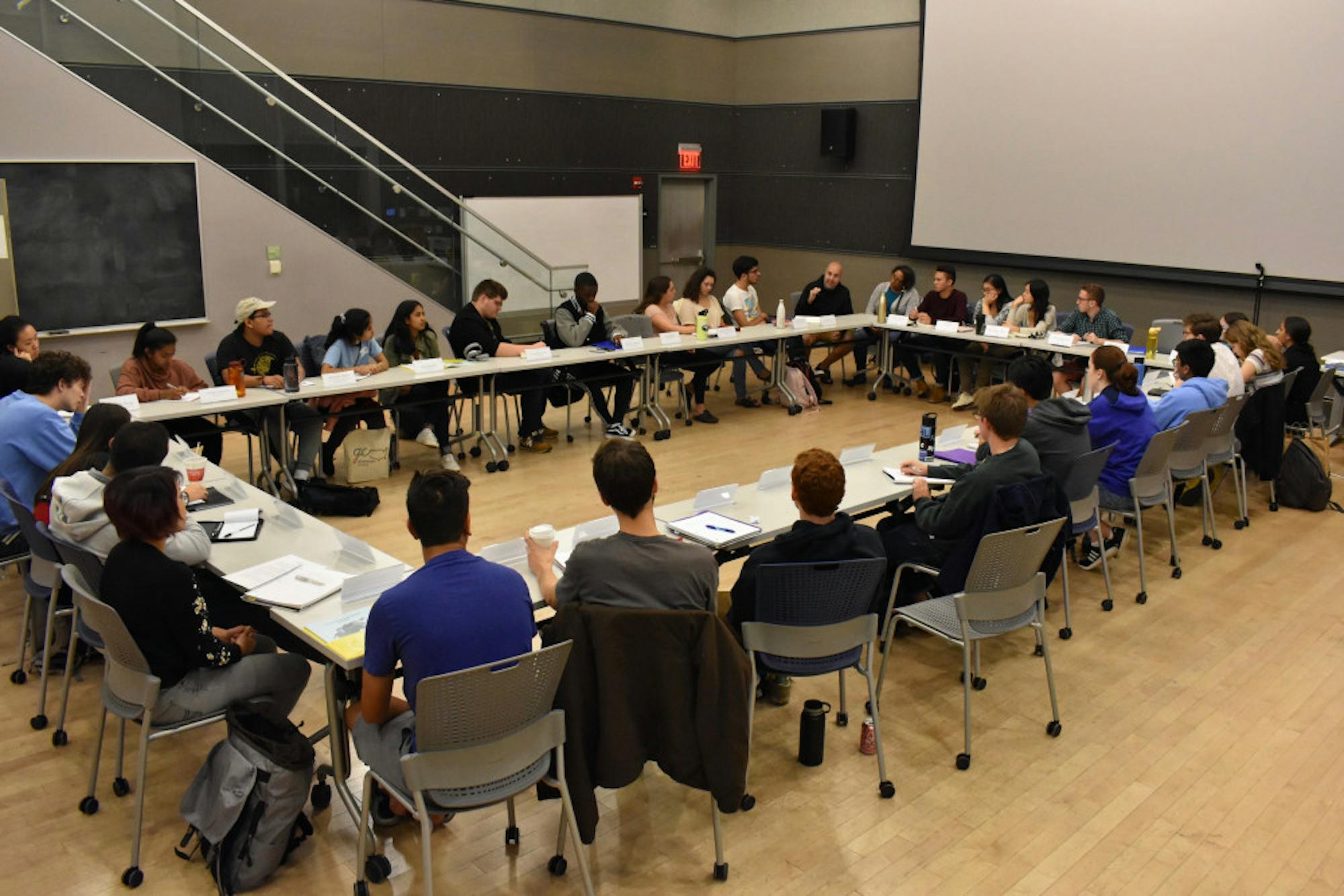The Tufts Community Union (TCU) Senate convened to discuss how Tufts’ endowment operates and hear updates from its Executive Board on the evening of Jan. 26 in the Sophia Gordon multipurpose room.
Sunday night’s TCU Senate meeting marks the second consecutive week that the deliberative body has not voted on a resolution or supplementary funding requests from student organizations, which usually occupy the senators for the bulk of their weekly meetings.
TCU Parliamentarian Finn McGarghan presented on the structure and organization of the university’s endowment for most of the meeting, and answered questions from the body afterwards.
McGarghan, a senior, explained that he felt it was especially important that senators understand the endowment, given the TCU Senate’s successful sponsorship of the Tufts Climate Action proposal in December which prompted the formation of the Responsible Investment Advisory Group (RIAG) to consider divesting Tufts’ endowment from the fossil fuel industry.
“It's very important that we kind of understand the endowment, how it's invested and what our goals actually are,” McGarghan said.
McGarghan explained that Tufts’ endowment is invested into a variety of funds, each overseen by external fund managers, which may then be invested in stocks of individual companies. He emphasized that Tufts wields no formal influence on what financial assets a manager decides to invest their fund in.
"So when we say, 'Hey, we don't like that you're investing in X company,' they say, 'too bad,'" McGarghan said. "We don't have say."
TCU Senator Deepen Goradia added that the many funds which the endowment invests in may themselves be invested into other funds, which are in turn invested into other funds.
“It’s like 'Inception,'” Goradia, a sophomore, said.
McGarghan continued to explain that calling for divestment from a particular company or industry means divestment from funds entirely, forming another barrier to divestment.
Another factor that complicates divestment is that the precise makeup of the endowment changes day-to-day, which makes knowing exactly how much is invested in a particular industry or company even more difficult, McGarghan said.
McGarghan added that Tufts incurs a substantial fee if it tries to divest from a particular fund before the expiration of the term that the university agreed to upon entry into the fund.
Considering all of these specific financial details, McGarghan emphasized the benefit that he believes the RIAG provides for students concerned about the endowment's investment activities.
"All it takes for us is to pass a resolution, for a student group to put together a 20-page proposal and have people who are experts to take a look at it, so we don't have to do all this," McGarghan said.
These facts, however, should not stop students from advocating and organizing for divestment from certain companies or industries, according to TCU Senator and Historian Rabiya Ismail.
Before entering this discussion on the endowment, Goradia, the chair of the administration and policy committee, reminded his fellow senators about the upcoming University Budget and Finance town hall on Feb. 4.
TCU Senate adjourned at about 7:40 p.m. Nine meetings remain in the academic year.
TCU Senate discusses endowment structure, organization

The TCU Senate convenes in the Sophia Gordon Multi-Purpose room on Sept. 30, 2018.





